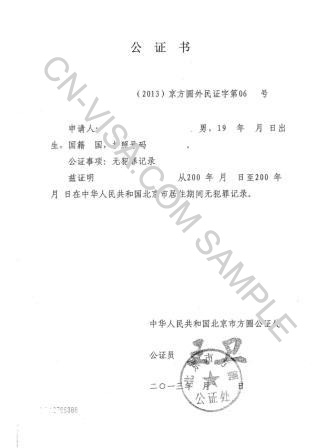

Our goal is to make automatic record clearance-where the state initiates and completes the clearance of all eligible criminal records-the standard across the country.

We’re working to help solve this issue by partnering with courts, criminal history repositories, executive branch agencies in state governments, policymakers, and advocacy groups to design and implement new record clearance policies. If the employer decides the applicant’s criminal history is a basis upon which to rescind the offer of employment, the employer must notify the applicant in writing of the disqualifying conviction(s), provide a copy of the conviction history report, and give the applicant at least five business days to respond before the employer may make a final decision.Ĭalifornia employers should review their background check policies and consult with counsel to ensure they scrupulously comply with the individualized assessment and notice requirements of the law.A criminal record creates lifetime barriers for people trying to move forward with their lives, meet basic needs, and thrive in their chosen field. 1008), effective January 1, 2018, also prohibits such employers from considering, distributing, or disseminating information related to specified prior arrests, diversions, and convictions that have been sealed, dismissed, expunged, or statutorily eradicated when conducting a conviction history background check.Īfter making a conditional offer of employment, employers may conduct a criminal history check, but the law requires an individualized assessment-the nature and gravity of the criminal history, the time that has passed since the conviction, and the nature of the job held or sought.
Felony conviction records california License number#
Finding the Riverside Superior Court to be in violation of Rule 2.507(c), the Court concluded: “In authorizing such searches, defendants may reasonably be said to have failed to ‘exclude’ … date of birth and driver’s license number in the Riverside Superior Court’s index as is required, even assuming that defendants are not disclosing this information.”Īs a reminder and as covered previously here, California law already prohibits an employer with five or more employees from inquiring into or considering the conviction history of an applicant until after the applicant has received a conditional offer of employment.

However, the Court of Appeal was not persuaded by the search versus disclosure distinction urged by the lower court. The Riverside Superior Court contended that it did not violate the rules because it did not disclose this information publicly, but rather allowed individuals who already possessed such information to use it as a data point to filter their search. Here, the question was whether members of the public using the Riverside Superior Court’s public website should be permitted to search the court’s electronic index by inputting an individual’s name as well as his/her date of birth and/or driver’s license number. The focal point of this case is California Rule of Court 2.507(c), which governs electronic access to court calendars, indexes and registers of actions: In addition to driver’s license number and date of birth, Rule 2.507(c) requires the following data to be excluded from court calendars, indexes and registers of actions: (1) social security number (2) financial information (3) arrest warrant information (4) search warrant information (5) victim information (6) witness information (7) ethnicity (8) age (9) gender and (10) government-issued identification card numbers. With the use of only a first and last name to conduct the search, the search results of a particular applicant or employee may show the criminal history of perhaps dozens of other people with the same or a similar name. This ruling complicates and further restricts how and even whether (from a practical standpoint) employers can conduct lawful background checks on job applicants and employees.īy ordering the Riverside Superior Court to remove birthdates and driver’s license numbers as data that can be used to identify individuals with a criminal record, the ability of employers (and others) to conduct criminal background checks will be further impeded if not made impossible. The California Court of Appeal has ruled that date of birth and/or a driver’s license number cannot be used to identify individuals in an electronic search of the criminal index of court records.


 0 kommentar(er)
0 kommentar(er)
